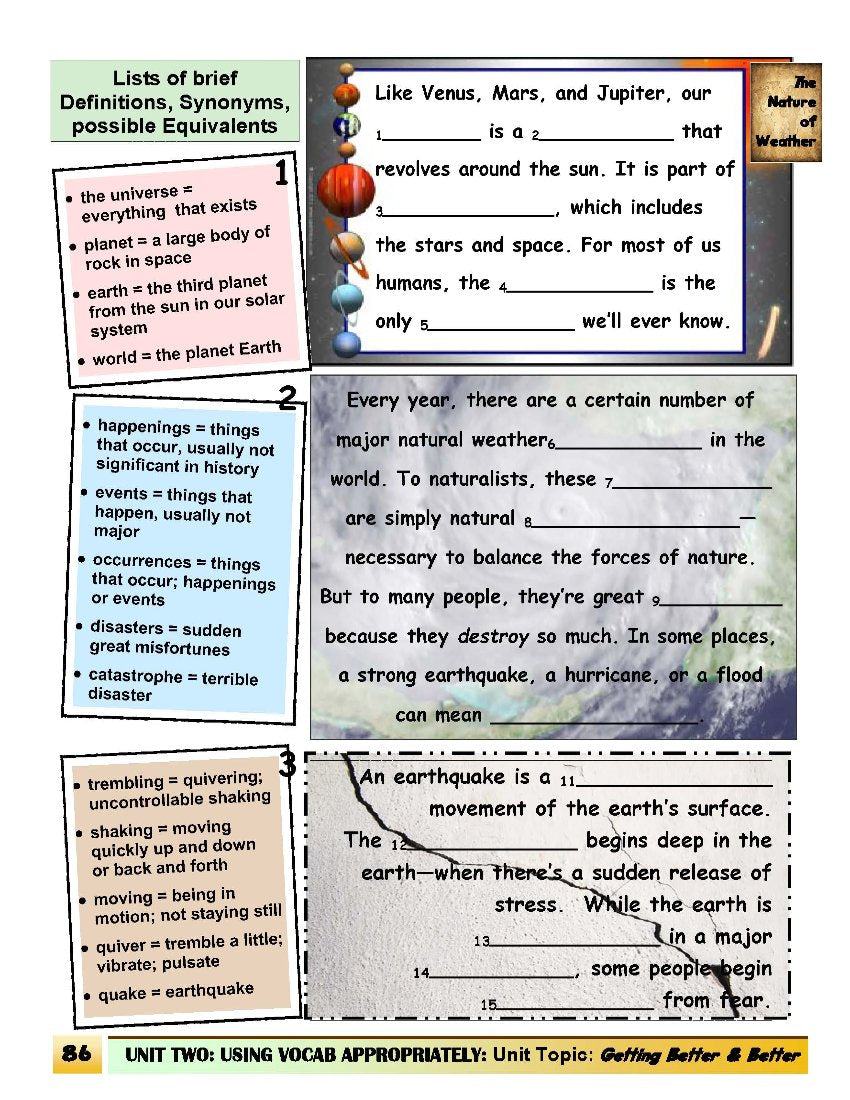
An adequate amount of each food type is essential for a healthy eating plan. This helps reduce the risk of chronic diseases, such as cardiovascular disease, cancer, and diabetes. A good way to improve your diet is to include more fruits and vegetables. They are high-in nutrients, low in calories and rich in fiber. Additionally, they provide a number of vitamins and minerals necessary for good health and prevent disease. Using these tips can help you improve your eating habits.
Apart from the importance of eating healthy, it is also important that you consider other factors that may influence your eating habits. How we eat can be affected by cultural, economic and environmental factors. This means that people's eating habits could change over time and from one place to the next. For example, a person's dietary habits may change as they age and gain more knowledge about the foods they eat. These factors aside, most people still eat large quantities of unhealthy food, even though they know it is harmful.
Although eating habits can be personal, it is important to have a consistent routine and stick to it. You should eat only when you feel hungry. Avoid eating if your mind is racing, stressed, or anxious. Instead, try to find something that will take your mind off your cravings and prevent you from overeating. You might prefer to walk than grab a snack. Planning your meals ahead is another good tip. This will ensure you have a balanced, healthy breakfast for your day.

Healthy snacks are important at work as well as at home. The goal is to eat as many healthy foods as possible. Also, it is important to have healthy snacks at all times in your car and in your office. This will allow you to keep your eyes on healthy snacks and meals. These snacks can be prepared ahead and stored in a lunch bag or at your desk. Also, ensure that you have healthy snack options if you go out.
Although research has shown that stress can affect eating habits, it is important to remember that the most common eating habits are based on cultural and family customs. Individuals are inclined to have particular preferences, especially in terms of the foods they eat. The average American consumes three meals per days. Similarly, Americans typically eat at least three small meals per day, with snacks coming in between meals.
FAQ
How do I build muscle quickly?
Fast muscle building is possible by eating healthy foods and regularly lifting weights.
When you're fresh and ready to do something, early morning is the best time for working out.
It is a good idea to do exercises like push-ups (pushes), bench presses (squats), and so on.
Use different weight training techniques and drink plenty water throughout the day.
Which workout is best for men?
The answer will depend on what you are searching for. Cardio workouts can help you lose weight faster than strength training.
If you want to just build muscle mass, strength training is better as it increases lean body weight.
Both types can be used to improve your overall wellbeing.
If you're looking for a quick way to get fit, I recommend HIIT/sprint interval training. This type is great for burning fat fast by increasing metabolism. It increases your endurance so you can continue training even when tired.
Is Cardio Better Than Strength Training?
Both are equally excellent. If you want to increase muscle mass faster, cardio is the better option.
Cardio burns more calories in a minute than strength training and more fat.
Strength training is a great way to build muscle mass. However, it takes more effort than cardio.
How many calories per day should I consume?
This can vary from person to person. On average, 2000 to 2500 calories are consumed per day. Based on your age, gender, height and activity level, you will need to calculate how many calories you require.
Which dietary supplements are good for weight loss.
Exercise and diet are key to losing weight. Some people find that certain supplementation can be helpful.
Some studies suggest that omega-3 fatty acids may help with weight loss. Omega-3s are essential fats that are important for brain function and cell membrane integrity. They can be found in seafoods like salmon, tuna or shrimp, as well as cod liver oil.
Green tea is being studied for its potential benefits in weight loss. The antioxidants in green tea, catechins and other compounds may increase metabolism and promote weight loss.
Statistics
- 10 pounds in a month is likely during a lean bulking phase, especially for beginners. (muscleandstrength.com)
- According to the American Heart Association, blood pressure should be checked at least once every two years, beginning at age 20. (my.clevelandclinic.org)
- Cardmembers earn 5% Back at Amazon.com with a Prime Credit Card. (amazon.com)
- Get free shipping and 25% off today. (healthline.com)
- Are You One of the 20% of Guys (mh.co.za)
External Links
How To
How can I exercise to burn fat?
Exercise can help you burn calories and increase your metabolism.
Moderate intensity exercise is a safe way to lose weight.
These are some tips to help you lose fat while working out:
-
Cardio exercises include walking, running, swimming, cycling, running and jogging.
-
For 30 minutes, do it three times a week.
-
If you want to lose more weight, add strength training to your routine.
-
Avoid intense workouts. You can build muscle without having to lose muscle tissue.
-
When exercising, make sure to drink lots of water. Water flushes out toxins and helps keep the body hydrated.
-
After exercising, you should drink low-fat protein drinks. Protein shakes help repair muscles and boosts energy.
-
You can eat smaller meals throughout the day so that you don't feel hungry in between meals.
-
Don't skip breakfast! Skipping breakfast can make you tired and sluggish.
-
Take care to your mental well-being. Stressful situations can affect your metabolism.
-
Keep a positive attitude. Research shows that overweight people gain more weight if they believe they are overweight than those who believe they look good.
-
Get enough sleep. It is harder to lose fat if you don't get enough sleep.
-
Active living is key. Make sure you get up and move every hour.
-
Maintain a healthy diet. You will feel fuller longer if you eat right.
-
Find relaxation techniques. An anxious mind won't allow your body release stress hormones, which can lead to the destruction of muscle tissue.
A balanced diet is one that includes all of the essential nutrients required for growth.
Instead of eating three large meals a day, eat six smaller meals every day. This allows your body to properly digest what you have eaten.
You need about 500 milligrams of calcium daily to maintain strong bones. Calcium can also be found in milk products, yogurt, fortified Soy beverages, orange Juice, cereals and bread.
Calcium comes from leafy green vegetables, beans, tofu, nuts, seeds, and cheese.
Vitamin D is required for calcium absorption. Vitamin D is found in eggs yolk, fatty fish and fortified foods.
Vitamin E is vital for your skin's health. Vitamin E is found in vegetable oils and wheat germ oil, as well as peanuts, almonds and sunflower seeds.
Zinc is essential for healthy immunity and wound healing. Zinc is found in oysters, legumes, meats, whole grains, and seafood.
Zinc deficiencies can lead to fatigue, decreased appetite, depression, and reduced immunity.
Too much sugar leads to insulin resistance. This results in higher blood glucose levels. Insulin resistance leads directly to weight gain.
High levels of free radicals can lead to insulin resistance. Free radicals are molecules that have unpaired electrons, which can cause damage to cell membranes or other parts of your body.
The most common sources of free radicals include food additives.
Free radical damage can lead to cancer, heart disease, diabetes, arthritis, asthma, and aging.
To prevent free radical damage, eat a healthy diet rich in antioxidants. Antioxidants protect against oxidative damage.
Vitamin C, beta carotene (found within citrus fruits, carrots, sweet potatoes and spinach), Vitamin E (found inside nuts, olive oils, avocados and eggs), and Vitamin C (found among mangoes.
Selenium, copper as well as manganese and zinc are some other antioxidant nutrients.
Selenium is known to protect cells from the oxidative damage that free radicals can cause. Selenium may be found in Brazil nuts as well tuna, liver and kidneys. It can also be found on shrimp, cod, turkey, beef lamb, pork, chicken, and other foods.
Copper protects your eyes, brain, eyes and red blood cell. Copper is also found in poultry, meat, and organs.
Manganese, an essential component of bone strength, is crucial. Manganese is found in brown rice, spinach, bananas, prunes, raisins, oatmeal, and lentils.
Zinc is important for healthy growth, reproduction, and wound-healing. Zn can be found in lean cuts, white fish, poultry, eggs, and other foods.